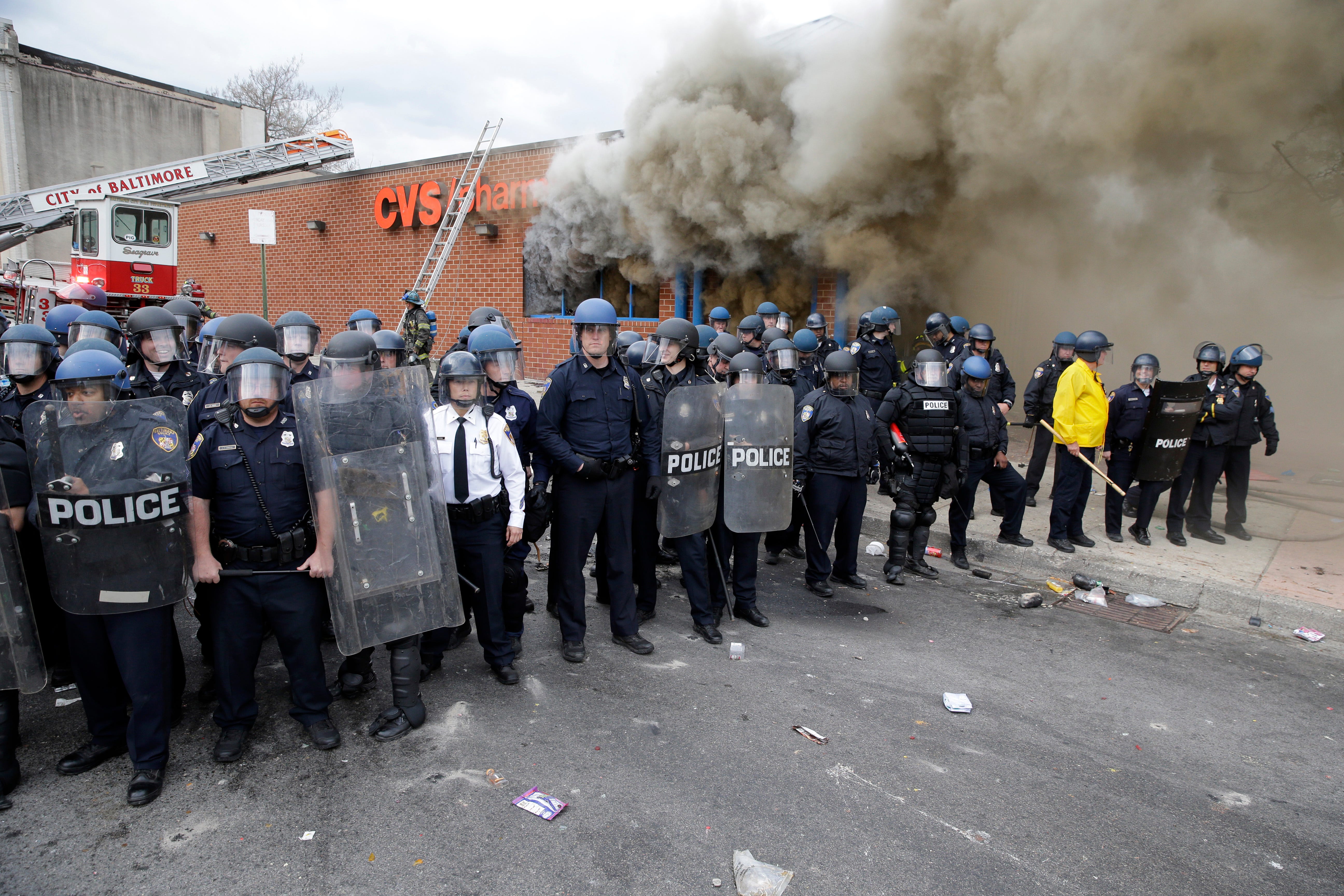WASHINGTON — As the Justice Department weighed its strategy for responding to the crisis that engulfed the Baltimore Police Department earlier this year, top police union officials found themselves in a most unlikely place: a conference table in the Justice Department’s Civil Rights Division, talking with the very people who would shape the federal government’s plan.
Rarely in the past six years, when more than 20 local police agencies have drawn the department’s scrutiny for excessive force and discrimination, had union officials—traditional adversaries in federal civil rights inquiries — been included in such a way. Not even during the civil unrest in Ferguson, Mo., that immediately followed the police shooting of an unarmed black teenager.
“We never got a whiff over there,” said Jim Pasco, executive director of the Fraternal Order of Police, the nation’s largest police union.
The meeting — which included the police union’s national president, Chuck Canterbury, Maryland Fraternal Order of Police president Vince Canales, Baltimore Fraternal Order of Police president Gene Ryan and Pasco — signals the emergence of a new relationship between federal authorities seeking to restore public trust in local law enforcement and union leaders who have closely guarded the rights of rank-and-file officers.
Much of the change, analysts say, represents a recognition that labor’s involvement is key to the success of federal reform efforts undertaken by the new leadership at Justice’s Civil Rights Division, which is increasingly exerting its authority in troubled communities across the country.
“If the Department of Justice wants to see real change, it has to involve the unions, too,” University of Pittsburgh law professor David Harris said. “If they don’t involve the unions, at the very least, (any) agreement created may not be as good. At worst, the unions may feel no involvement or obligation and may work to undermine the agreement’s success.”
Vanita Gupta, named last fall as acting chief of the Civil Rights Division, said that unions were among the first groups she sought out after taking office.
The start of the former ACLU lawyer’s tenure — in the wake of continuing unrest in Ferguson — coincided with perhaps one of the most volatile periods in police-community relations in recent history.
“Coming in after Ferguson, there is a much greater focus on the part of everyone,” Gupta told USA TODAY. “Unions are looking at these issues, too, because lack of trust has real implications for (officer) safety on the streets.
“These groups require engagement,” she said.
Gupta called the May meeting with union officials — which followed the death of Freddie Gray, who died while in the custody of Baltimore police — an opportunity to “demystify what we are doing at the (civil rights) division.”
“It was a very important meeting, a really productive meeting,” Gupta said, The division, meanwhile, is continuing a broad inquiry into Baltimore policing operations.
Pasco, whose organization numbers more than 320,000 members across the country, said that he was first introduced to Gupta in October at a policing conference in Orlando and “walked away feeling that she was somebody I was comfortable working with.”
During the height of the Baltimore crisis, Pasco said the police union and the civil right chief were in contact “multiple times a day.” It is a line of communication that has remained open and has included other union representatives in local communities where Justice has taken its recent reform efforts.
In Cleveland, the Justice Department reached a deal this spring to place the troubled local police department under the direction of an independent monitor.
A centerpiece of the sweeping Cleveland agreement is a call for local union representation in the creation of a Community Police Commission to address racial bias and police accountability issues. Other members of the commission will be drawn from local civil rights groups and the business community.
Gupta has described the Cleveland agreement as a potential national “model” for police reform efforts across the country.
“We are increasingly building union representation into (local police) agreements,” Gupta said. “All of that has to go in the mix.”
Chuck Wexler, executive director of the law enforcement think tank Police Executive Research Forum, said greater union involvement also underscores a “recognition among labor leaders that something has to change.”
“It’s not something that you have seen in the past,” Wexler said of the increased role of union leaders, who cited the “magnitude” of recent events as spurring the need for greater cooperation.
“This is our Tylenol moment,” Wexler said, referring to the drug-tampering crisis that threatened the iconic pain-killer’s brand in 1982. “We all have to figure out how we can do a better job.”
It is fitting, perhaps, that when the Fraternal Order of Police celebrates its 100th anniversary next month, Attorney General Loretta Lynch will be in Pittsburgh to give the keynote address.
“It is more than symbolic,” Pasco said. “It is a signal to our members. If they weren’t happy with (former attorney General) Eric Holder, then this a person they should consider.”
Follow @bykevinj on Twitter
http://www.usatoday.com/story/news/nation/2015/07/15/justice-police-investigations/30126403/

